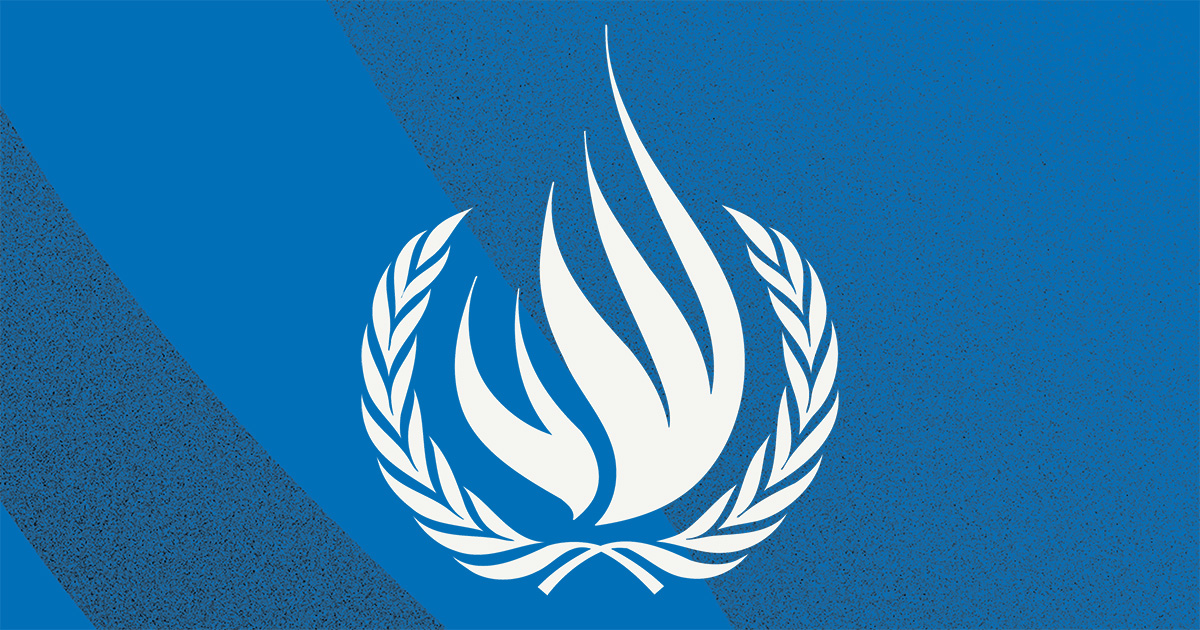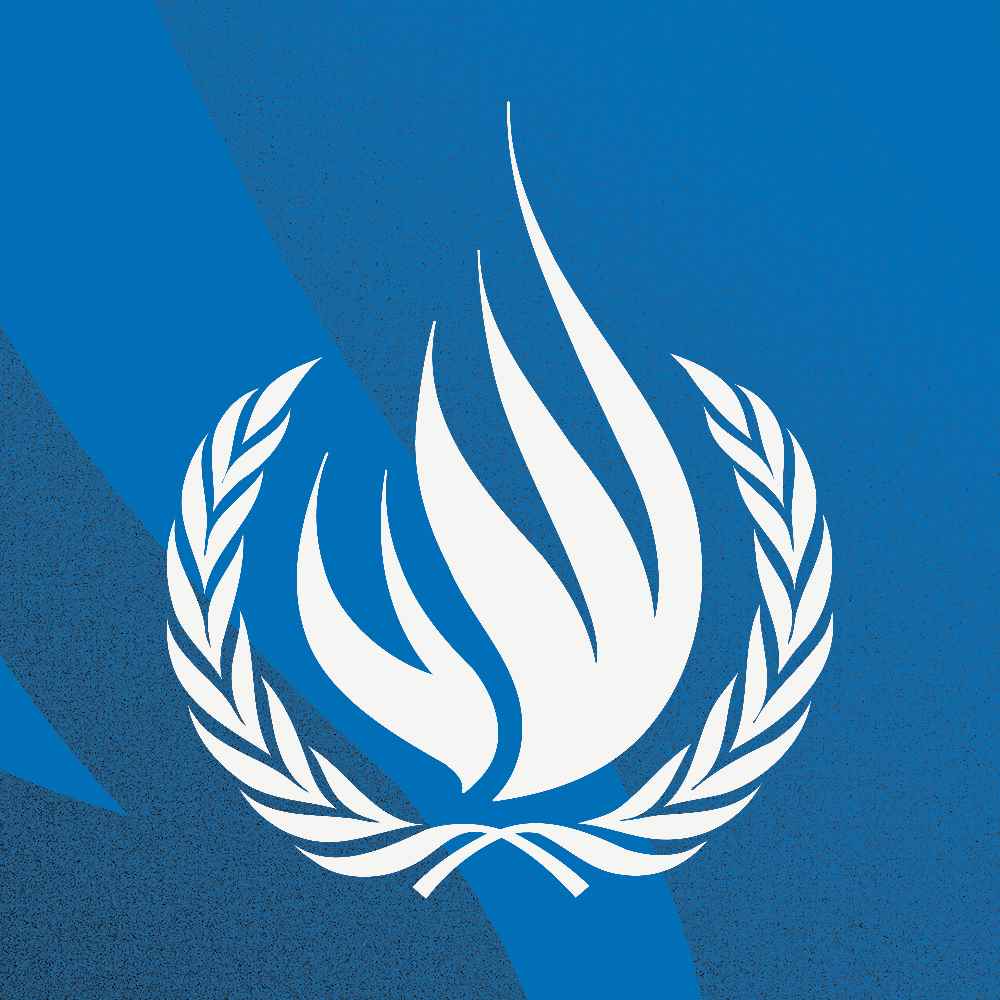
José and Mariana*, siblings from Guatemala, have been staying at Casa del Migrante in Saltillo, Mexico, for several weeks. Their journey towards the United States of America began with dreams of a better life, but near the US border, their hopes turned into a nightmare. They were kidnapped by an organized crime group and faced death. In desperation, they contacted their family back in Guatemala, who sold everything to pay the ransom of 7,000 USD. Released but abandoned, José and Mariana eventually made their way to the shelter, finding temporary solace within its walls.
Now, their only wish is to return home. However, like many migrants, they lack the resources to make the journey back. Stories like theirs are far too common. Thousands of migrants fleeing violence, poverty, and persecution risk everything to go through Mexico, facing dangers that sometimes cost them their lives.
At Casa del Migrante, the brightly coloured walls are more than a sanctuary; they are a beacon of dignity and human rights. For over 20 years, the shelter has served as a lifeline for migrants, providing critical support on a very perilous migration route.
Located in Saltillo, the capital of Coahuila, a northeastern Mexican state, Casa del Migrante stands at a critical juncture on the migration route. Saltillo, often referred to as "the Detroit of Mexico" for its industrial prominence, is intersected by the notorious train known as La Bestia (The Beast) or Tren de la Muerte (Train of Death).
The shelter’s director, Alberto Xicoténcatl, has dedicated his life to defending migrants" rights, despite the risks.
“Injustice has roots in structures that exploit vulnerability. But these structures are not immovable. We can change them,” Xicoténcatl said. “Those of us who defend human rights, we do not talk about illegal people. In the end, it is not up to us to label or classify a person as either good or bad, illegal, or not illegal.”.
Casa del Migrante works to protect and defend the rights of migrants on their journey to the United States, as they often face serious dangers, including disappearances, murder, kidnapping, executions, trafficking, and other grave injustices and violations.
Life at Casa del Migrante in Saltillo
Standing up for migrants’ rights
“That ability we have as humans to build and rebuild reality was what motivated me to accept that one of the main tools to rebuild realities was human rights,” Xicoténcatl said.
Xicoténcatl said he has long wanted to fight against injustice and do something for those who are more vulnerable. He realized that through human rights he could foster the way the shelter worked.
“[At first] migrants houses were seen as spaces of assistance and not as spaces to defend human rights. It was the theory of human rights that made me first realize I was as a human rights defender,” Xicoténcatl said. “We were standing up for the rights of migrants and refugees. It didn’t matter if we were lawyers or working in the kitchen. All together we were defending them.”
That fight has not come without a cost. Casa del Migrante has faced threats and risks, to the extent that they have protective measures provided by the Protection Mechanism of Human Rights Defenders and Journalists in Mexico.
“When the attacks against Casa del Migrante in Saltillo started, I realized that the work that we were doing was damaging economic interests, including institutions and people who committed crimes against migrants,” Xicoténcatl said.
But why damage a shelter dedicated to human rights and humanitarian work for migrants? According to Xicoténcatl, the reason is simple – money. Crime organizations have found in migrants a source of income. They take from the migrants anything they have with the promise of getting them to the US, these groups have little to no capacity to guarantees people’s safety throughout Mexico, Xicoténcatl said.
“We’ve had cases of migrants that had been forced to work for the organized crime, to cook, wash, or wash clothes for sicarios. This happens because migrants are in a complete state of vulnerability,” he said.
So, when migrant houses start guaranteeing protection, they damage the interests of criminal organizations, he added.
“The criminal groups are exposed and can be persecuted, however, the collusion with State institutions prevents justice from being delivered, thus perpetuating impunity,” Xicoténcatl explained.
Safeguarding migrants" rights
According to UN Human Rights migration is a global issue, with an estimated 281 million people—3.6% of the world’s population—living outside their countries of origin. Many of these journeys are fuelled by desperation, often stemming from the impacts of climate change, as people escape threats to their safety, livelihoods, and dignity.
In Mexico, UN Human Rights plays a crucial role in promoting and protecting the rights of migrants.
“We document the trends and characteristics of mixed migration flows occurring in the country, including those that begin, pass through, remain, or return,” said Jesús Peña Palacios, Deputy Representative in Mexico.
UN Human Rights also monitors the impact of State policies, particularly the effects of migration and asylum policies in the US. This has enabled the Office in Mexico to identify risks, gaps, and opportunities to strategically collaborate with authorities, civil society organizations, shelters, the Catholic Church, academia, and rights holders, he explained. Together, they all work to develop human rights-based responses and comprehensive protection strategies.
According to Peña Palacios, migrants in Mexico face significant challenges, including violations of their physical integrity and safety; limited access to basic rights such as water, healthcare, and housing; arbitrary detention and deportation; discrimination and xenophobia; lack of access to justice; and difficulties due to irregular migration status.
“Connection, community, and solidarity are proven conduits for dialogue, collaboration, and solutions. We must reject the dehumanization of ‘the other’,” said UN Human Rights Chief Volker Türk in his 2024 vision statement “Human Rights: A Path for Solutions”.
Türk said that the vilification of migrants, refugees, political opponents, victims of conflict – a list that grows longer by the day – puts individuals and our societies at risk.
At Casa del Migrante, hope blossoms. Migrants like José and Mariana found not only shelter but also a renewed sense of dignity. The colourful walls, bustling community spaces, and unwavering support from advocates like Xicoténcatl help to remind that migrants’ rights are, indeed, human rights.











